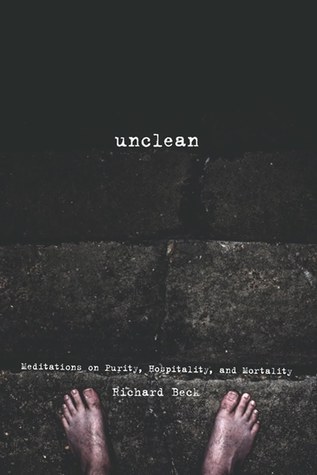More on this book
Community
Kindle Notes & Highlights
Penal substitutionary atonement might be a theological sweet tooth.
And this is, as we have discussed, the pastoral worry about penal substitutionary atonement. It is the concern that once the status of saved is obtained the believer loses missional motivation. Being found “clean,” there is little left for the believer to do. The psychic experience of being “saved” and “washed clean by the blood of Jesus” can function like those antiseptic wipes in Zhong and Liljenquist’s research—soothing the conscience and, as a consequence, reducing prosocial motivation. This is the pietistic temptation, seeking a personal experience of “cleansing” at the expense of social
...more
Jesus wants to remove notions of “purity” from the social sphere to, in effect, eliminate sociomoral disgust from the life of Israel. For mercy is impossible when sociomoral disgust is operative.
What we discover in all this is that disgust and love are reciprocal processes. Disgust erects boundaries while love dismantles boundaries.
Consequently, it is difficult to reconcile notions of holiness and purity with acts of solidarity, embrace, and inclusion. At critical moral junctures, one must choose: exclusion or embrace? In Matthew 9, for example, Jesus selects embrace while the Pharisees select exclusion.
No conversation about sin, purity, or holiness can begin until human dignity has been secured beyond all question or doubt. Discussions of purity and sin cannot be primary discussions. For when the “will to purity” trumps the “will to embrace” (when sacrifice precedes mercy), the gears of sociomoral disgust begin to turn, poisoning the well of hospitality by activating the emotions of otherness. In the desire to secure purity the faith community will begin to turn inward. The moral circle shrinks. The church begins to define its spiritual mission as the regulation of purity boundaries within
...more
American ethic is, thus, “for people to create a living world where death seems abnormal and accidental. [Americans] must create a living world where life is so full, so secure, and so rich with possibilities that it gives no hint of death and deprivation.”8 What we see in this death repression is a collective and cultural denial of our own vulnerability and need. The American duty, according to McGill, is to be “fine,” to take up “the duty to look well, to seem fine, to exclude from the fabric of [our] normal life any evidence of decay and death and helplessness.”9 This social pressure to be
...more
The love which is proclaimed in many churches that worship the [American] dream carefully disregards the outcome of love. These churches speak of love as helping others, but they ignore what helping others does to the person who loves. They ignore the fact that love is self-expenditure, a real expending, a real losing, a real deterioration of the self. They speak as if the person who is loving had no problems, had no needs . . . They say to people: “Since you have no unanswered needs, why don’t you go and help the other people who are in need?” But they never go on to add “If you do this, you
...more
This highlight has been truncated due to consecutive passage length restrictions.
it is within the giving and receiving of this “fellowship of neediness” where the life and love of God is fully expressed and experienced.
But none of this can happen if disgust continues to foster a “denial of death” by pushing away all reminders of decay and biological need. Once again we see the need to dismantle disgust psychology if we are to move into experiences we perceive as morbid, demeaning, and disgusting. Disgust and contempt prevent us from recognizing and embracing the need, vulnerability, death, and decay within our own lives. Because, despite appearances and protestations to the contrary, we are not “fine.” And by admitting as much we embrace, without disgust or distain, our fragile and shared humanity. We
...more
When religious life comes to be dominated by holiness and purity categories, two things happen. First, social stigmas are created to protect our purity, pushing away people (e.g., “sinners”) who are threats to our holiness. Second, the purity emphasis creates an otherworldly focus on the spiritual, eventually privileging the spiritual life over the life of the body. Religious life becomes “too spiritual” and begins to deny human need. This undermines empathy and justice:


